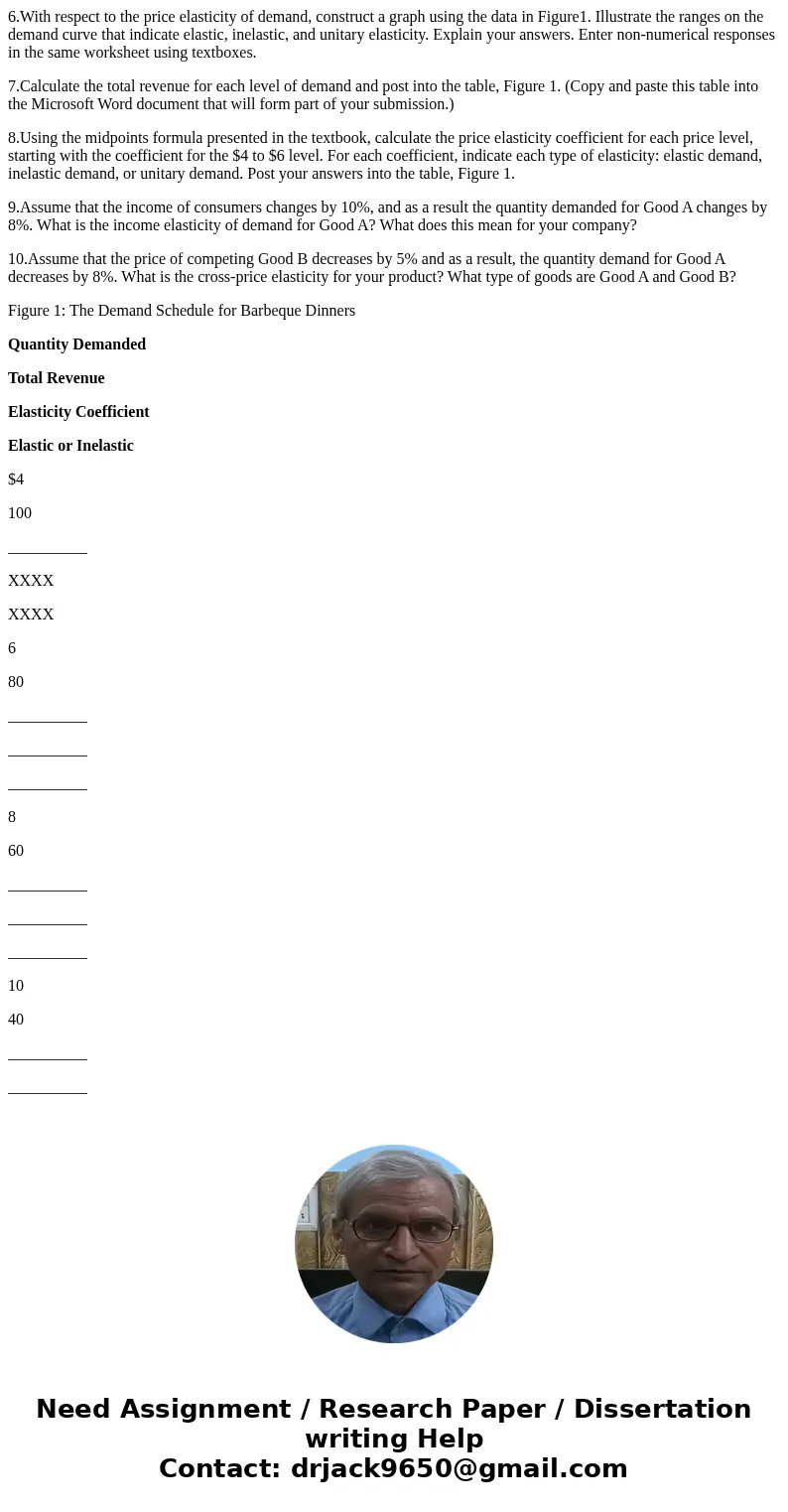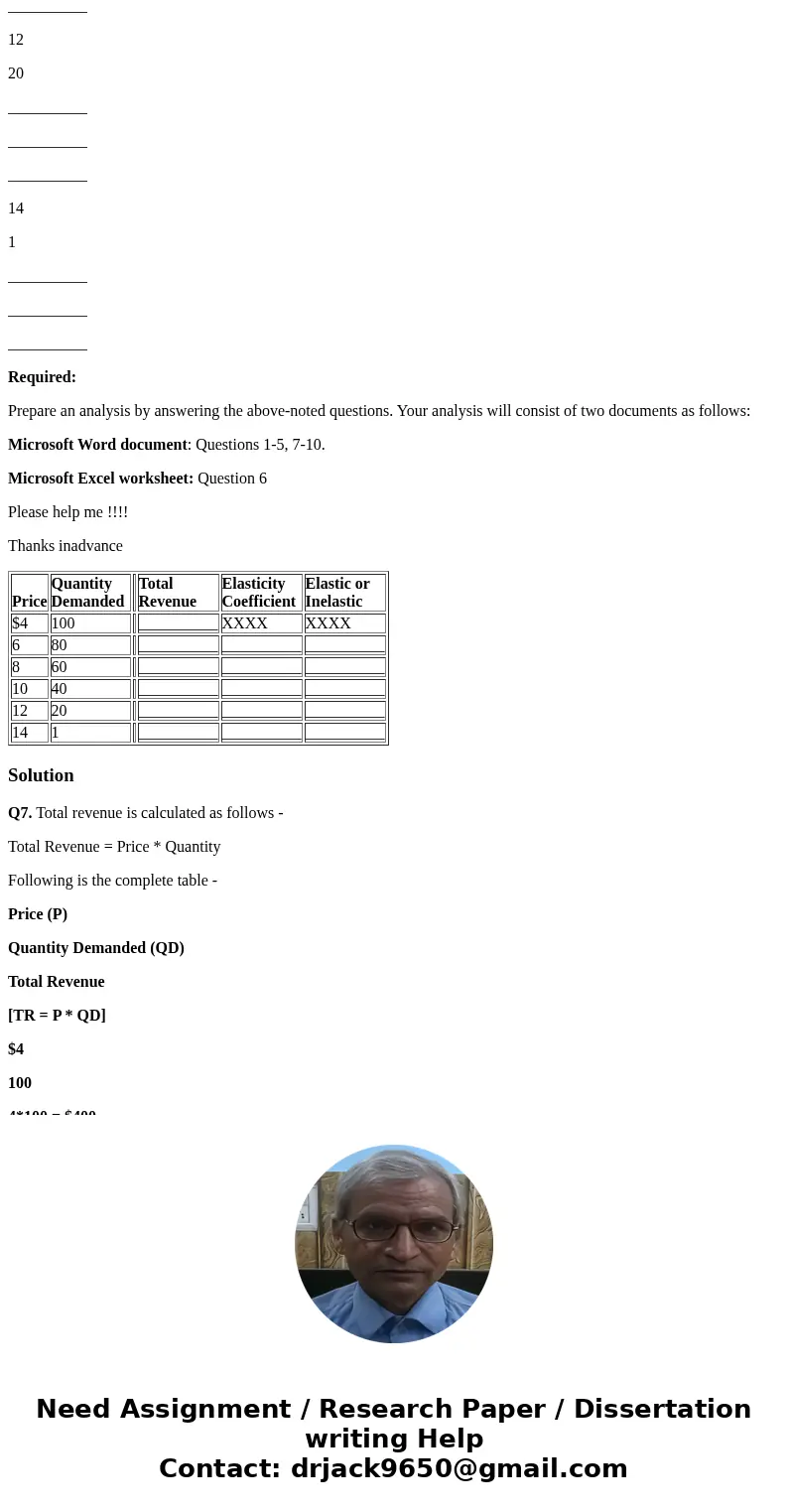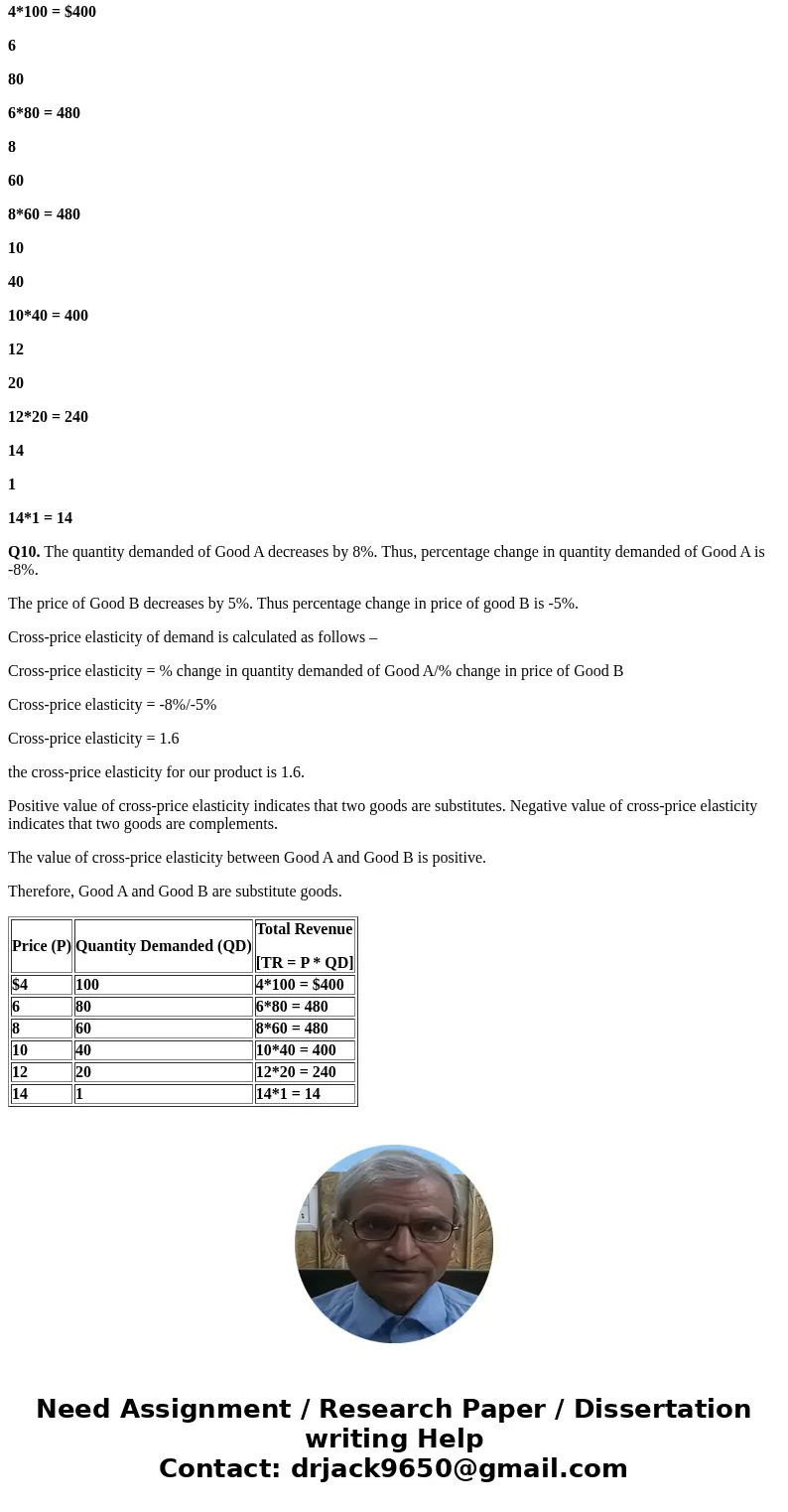6With respect to the price elasticity of demand construct a
6.With respect to the price elasticity of demand, construct a graph using the data in Figure1. Illustrate the ranges on the demand curve that indicate elastic, inelastic, and unitary elasticity. Explain your answers. Enter non-numerical responses in the same worksheet using textboxes.
7.Calculate the total revenue for each level of demand and post into the table, Figure 1. (Copy and paste this table into the Microsoft Word document that will form part of your submission.)
8.Using the midpoints formula presented in the textbook, calculate the price elasticity coefficient for each price level, starting with the coefficient for the $4 to $6 level. For each coefficient, indicate each type of elasticity: elastic demand, inelastic demand, or unitary demand. Post your answers into the table, Figure 1.
9.Assume that the income of consumers changes by 10%, and as a result the quantity demanded for Good A changes by 8%. What is the income elasticity of demand for Good A? What does this mean for your company?
10.Assume that the price of competing Good B decreases by 5% and as a result, the quantity demand for Good A decreases by 8%. What is the cross-price elasticity for your product? What type of goods are Good A and Good B?
Figure 1: The Demand Schedule for Barbeque Dinners
Quantity Demanded
Total Revenue
Elasticity Coefficient
Elastic or Inelastic
$4
100
__________
XXXX
XXXX
6
80
__________
__________
__________
8
60
__________
__________
__________
10
40
__________
__________
__________
12
20
__________
__________
__________
14
1
__________
__________
__________
Required:
Prepare an analysis by answering the above-noted questions. Your analysis will consist of two documents as follows:
Microsoft Word document: Questions 1-5, 7-10.
Microsoft Excel worksheet: Question 6
Please help me !!!!
Thanks inadvance
Price | Quantity Demanded | Total Revenue | Elasticity Coefficient | Elastic or Inelastic | |
| $4 | 100 | __________ | XXXX | XXXX | |
| 6 | 80 | __________ | __________ | __________ | |
| 8 | 60 | __________ | __________ | __________ | |
| 10 | 40 | __________ | __________ | __________ | |
| 12 | 20 | __________ | __________ | __________ | |
| 14 | 1 | __________ | __________ | __________ |
Solution
Q7. Total revenue is calculated as follows -
Total Revenue = Price * Quantity
Following is the complete table -
Price (P)
Quantity Demanded (QD)
Total Revenue
[TR = P * QD]
$4
100
4*100 = $400
6
80
6*80 = 480
8
60
8*60 = 480
10
40
10*40 = 400
12
20
12*20 = 240
14
1
14*1 = 14
Q10. The quantity demanded of Good A decreases by 8%. Thus, percentage change in quantity demanded of Good A is -8%.
The price of Good B decreases by 5%. Thus percentage change in price of good B is -5%.
Cross-price elasticity of demand is calculated as follows –
Cross-price elasticity = % change in quantity demanded of Good A/% change in price of Good B
Cross-price elasticity = -8%/-5%
Cross-price elasticity = 1.6
the cross-price elasticity for our product is 1.6.
Positive value of cross-price elasticity indicates that two goods are substitutes. Negative value of cross-price elasticity indicates that two goods are complements.
The value of cross-price elasticity between Good A and Good B is positive.
Therefore, Good A and Good B are substitute goods.
| Price (P) | Quantity Demanded (QD) | Total Revenue [TR = P * QD] |
| $4 | 100 | 4*100 = $400 |
| 6 | 80 | 6*80 = 480 |
| 8 | 60 | 8*60 = 480 |
| 10 | 40 | 10*40 = 400 |
| 12 | 20 | 12*20 = 240 |
| 14 | 1 | 14*1 = 14 |



 Homework Sourse
Homework Sourse